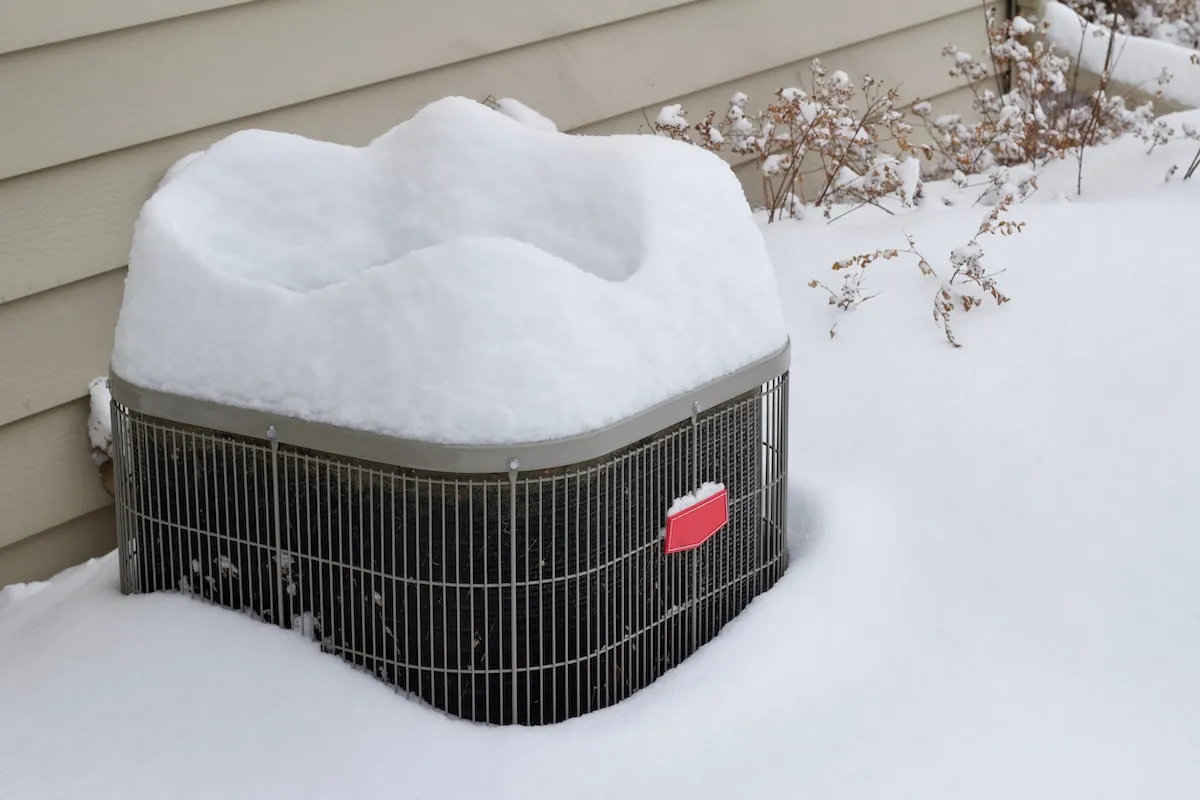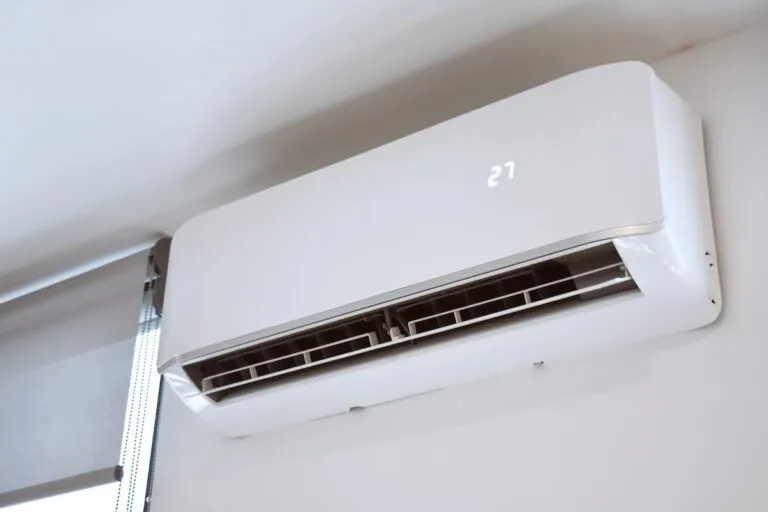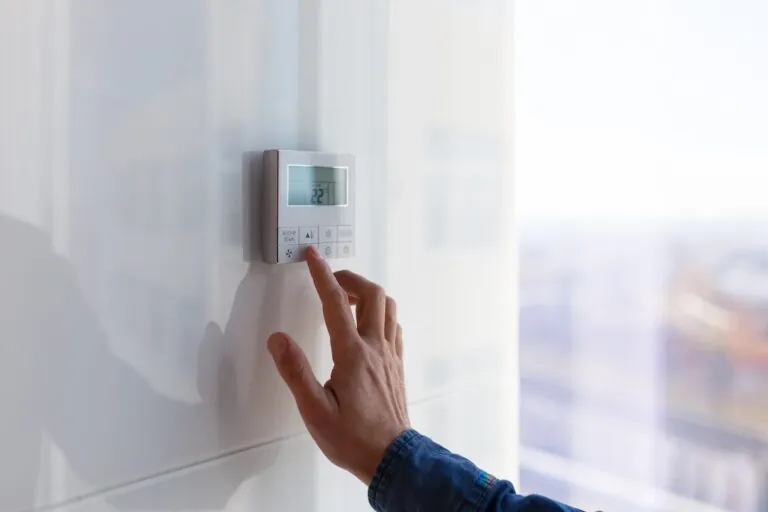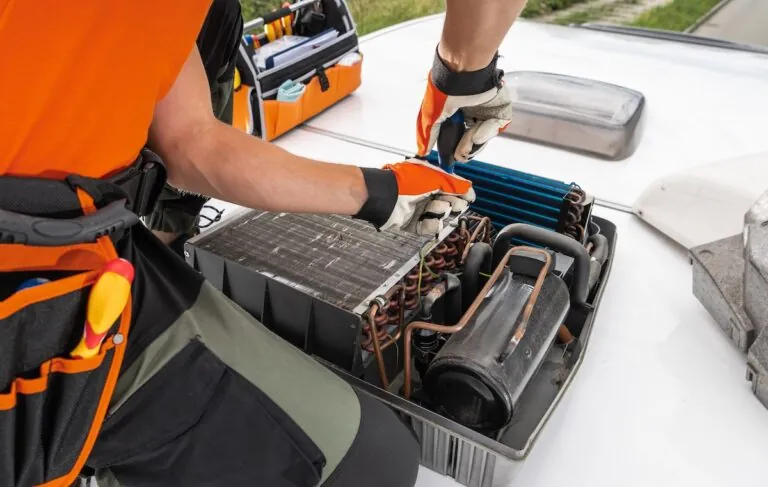Using an AC cover for winter is a common question among homeowners who want to protect their outdoor unit during Minnesota’s long, snowy months. While it may seem like an obvious way to shield your air conditioner, covering it isn’t always necessary, and in some cases, it could actually do more harm than good. Knowing when and how to use a cover can help you keep your AC in top shape year-round.
- Preventing damage: Covers can protect against falling leaves, debris, and ice buildup.
- Avoiding moisture issues: Improperly used covers can trap condensation, leading to rust and mold.
- Peace of mind: Choosing the right method helps homeowners feel confident their AC is ready for spring.
❄️ Should You Cover Your AC in Winter?
For most modern systems, a full AC cover isn’t required. Air conditioners are built to withstand rain, snow, and freezing temperatures. The components are designed for outdoor exposure, meaning they can handle harsh Minnesota winters without a problem.
In places like Bloomington and surrounding areas, the bigger concern is often debris. Falling branches, leaves, or icicles can damage the fan or coil. That’s why partial covers, which only protect the top of the unit, are often a better option than full covers.
If you’re thinking about adding an AC cover, consider how your AC is positioned. Units under overhangs or near landscaping may not need much additional protection. However, those directly exposed to trees or heavy rooftop snow may benefit from some shielding.
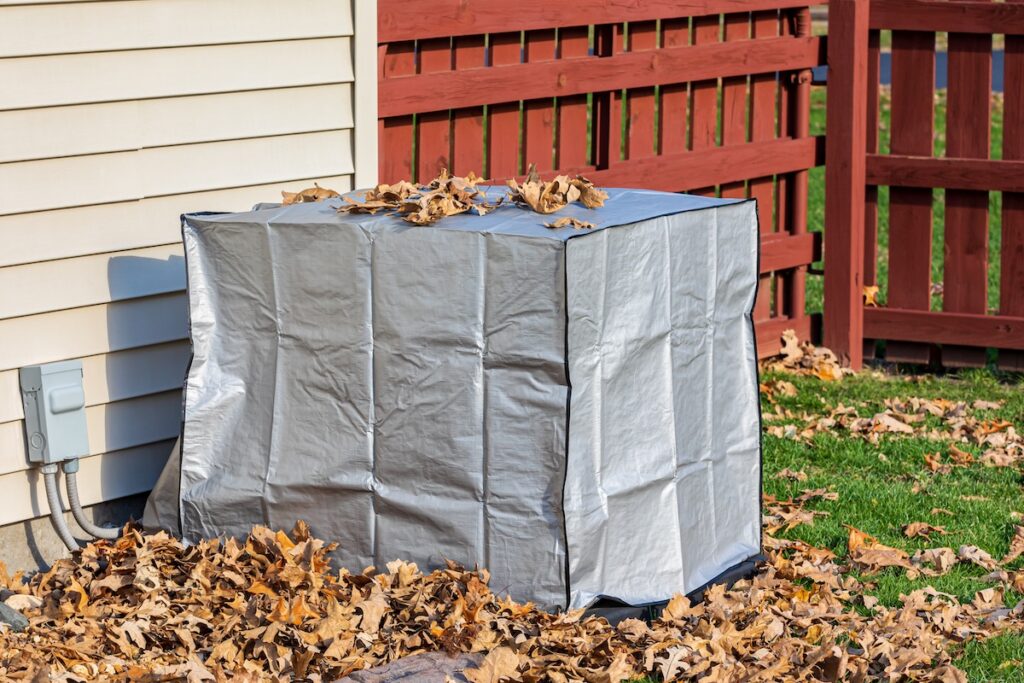
⚠️ Risks of Using a Full AC Cover for Winter
While it may sound protective, a full cover can create new issues.
Moisture Buildup
Covers trap condensation inside the unit, which can lead to rust or corrosion on important parts. This trapped moisture is especially risky in climates where snow melts and refreezes repeatedly. Over time, moisture damage can shorten the lifespan of your system.
Pest Infestation
Covers can make your AC an attractive shelter for rodents or insects. Small animals may nest inside and chew on wires, leading to costly repairs in the spring. Once pests find their way inside, they can be difficult to remove without professional help.
Restricted Airflow
If you accidentally turn your AC on before removing the cover, it could damage the compressor or restrict airflow. Even a short cycle can cause significant problems. For busy households, forgetting to remove a cover before the first warm spring day is an easy mistake to make.
✅ When an AC Cover Might Be Helpful
There are a few scenarios where a cover can offer some benefits.
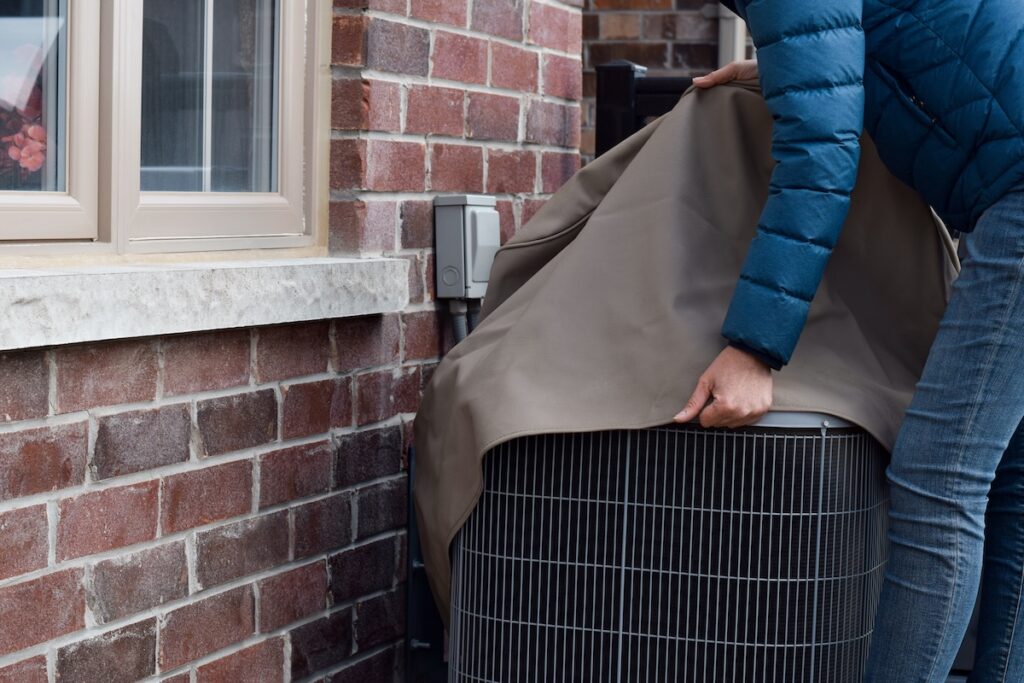
Protection From Falling Debris
If your AC sits under trees or near your roofline, a AC cover for winter can keep branches, leaves, or icicles from damaging the unit. In this case, a breathable top cover is usually enough to shield the system without creating the risks of a full cover.
Extra Peace of Mind
Some homeowners simply feel more comfortable knowing their AC has an added layer of protection. If this applies to you, choose a cover designed specifically for AC units that allows ventilation and prevents moisture buildup.
Temporary Protection
During short-term conditions like heavy storms or construction around your home, a cover can keep debris out. Just remember to remove it once the risk has passed to avoid long-term damage.
👉 Alternatives to Using an AC Cover for Winter
Instead of relying on a full cover, you can take other simple steps to protect your unit.
- Clear the area: Keep leaves, branches, and other debris away from your AC throughout the fall.
- Check for damage: Inspect the unit before winter and after heavy storms to make sure it’s in good condition.
- Use a top cover: Place a breathable board or manufacturer-approved shield over the top to block falling debris without trapping moisture.
- Schedule maintenance: Have a technician service your system before winter to catch issues early.
These steps often provide the same protection without the risks associated with a full AC cover for winter.
🏠 Additional Winter HVAC Tips for Homeowners
Caring for your AC isn’t the only step to take when winter rolls in. To keep your entire HVAC system performing at its best, consider these additional tips:
Protect Your Furnace
Since your AC will be dormant, your furnace will be doing the heavy lifting all winter long. Scheduling a furnace tune up in the fall ensures it’s clean, efficient, and safe. Technicians can catch issues like worn belts or weak airflow before they cause bigger problems during the coldest days.
Monitor Snow and Ice
Even if you don’t use an AC cover for winter, keep an eye on snow and ice buildup around your outdoor unit. Heavy drifts that pile up against the AC can restrict ventilation and add extra weight. Gently clear snow away with a broom or shovel, but avoid chipping ice directly from the unit to prevent damage.
Keep Vents Clear Indoors
Blocked vents inside your home can make your furnace work harder and reduce comfort. Make sure furniture, rugs, or curtains aren’t restricting airflow. Good circulation not only keeps you comfortable but also supports system efficiency.
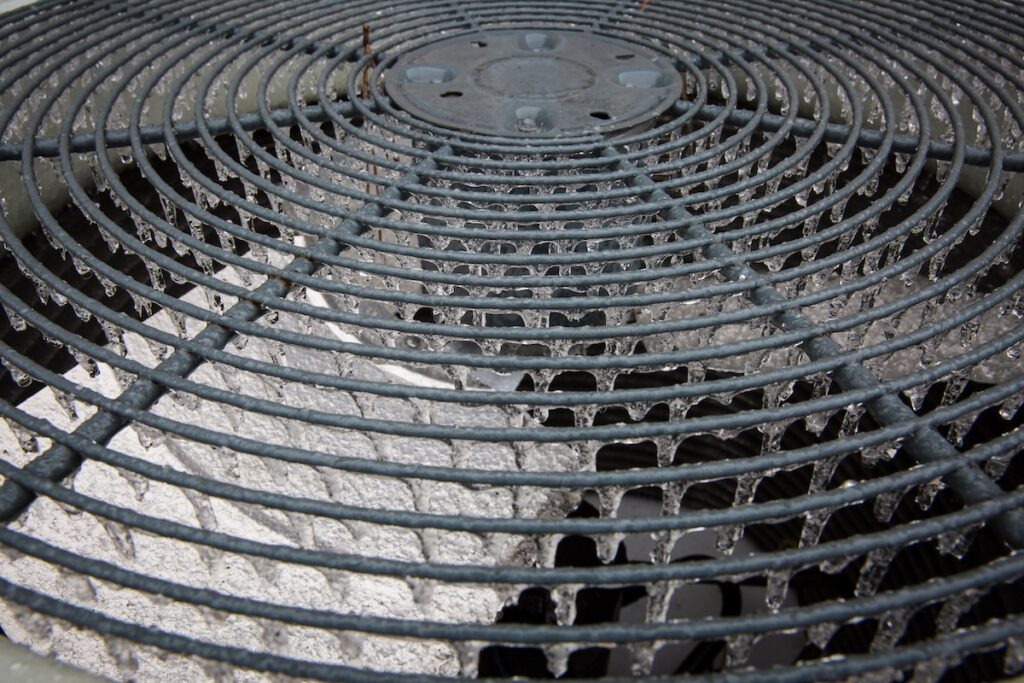
🧑🔧 What HVAC Experts Recommend
Most HVAC professionals agree that a full AC cover for winter is not necessary in cold-weather regions. Instead, the focus should be on keeping the unit free of debris and ensuring it’s serviced regularly.
For Bloomington homeowners, the priority is preparing the furnace for heavy winter use, since the AC will remain dormant. Adding a furnace tune up to your fall checklist ensures your whole HVAC system is ready for the season. Many service plans include both heating and cooling maintenance, so you’ll know your AC is set for summer when the time comes.
🤝 Keep Your AC Safe Without the Hassle
Deciding whether to use an AC cover for winter comes down to understanding your system and your environment. While covers can protect against falling debris, they also come with risks like trapped moisture and pests. For most homeowners, keeping the area around the unit clear and scheduling regular maintenance is the best approach.
Genz-Ryan has been helping Bloomington residents care for their heating and cooling systems for decades. If you’re unsure about whether your AC needs protection this winter, or if it’s time to schedule seasonal maintenance, our team is here to help. Contact us today for trusted HVAC service and a free quote.



